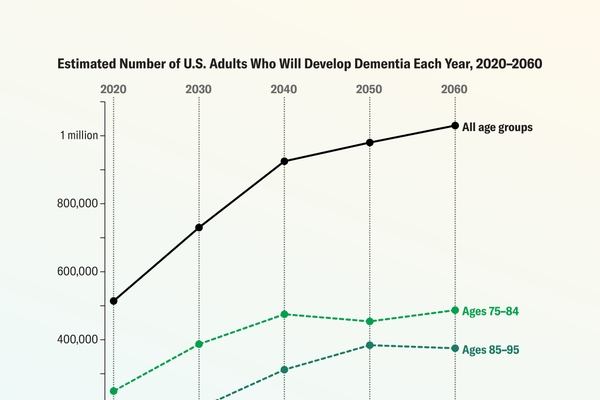
New research published in Nature Medicine has revealed a startling increase in dementia risk, with approximately 42% of adults over age 55 now expected to develop the condition during their lifetime. This figure represents more than double previous estimates, signaling a growing public health concern that demands immediate attention.
The comprehensive study highlights a projected surge in dementia cases across the United States, with annual diagnoses expected to double by 2060. This dramatic increase is largely attributed to the aging Baby Boomer generation entering their senior years, creating unprecedented challenges for healthcare systems and families alike.
Significant disparities exist among different demographic groups. Black Americans face a heightened risk of 44% compared to 41% for white Americans, with researchers projecting a potential tripling of new cases among Black Americans by 2060. These disparities likely stem from systemic healthcare inequalities and varying access to preventive care.
Gender also plays a crucial role in dementia risk. Women face a notably higher lifetime risk at 48%, compared to 35% for men. This difference is primarily attributed to women’s longer life expectancy, though genetic factors, particularly the APOE4 gene variant, contribute to increased risk across both genders.
While age remains the most significant risk factor, with risk increasing substantially after age 75, experts emphasize that several modifiable factors can influence dementia development. Dr. Josef Coresh from NYU Grossman School of Medicine notes, “Dementia risk is high, and as we get older, it gets much higher. The emerging consensus is that it’s never too early or too late to work on aspects of health that can improve lives and reduce the risk.”
Healthcare professionals recommend focusing on manageable risk factors, including:
- Maintaining healthy blood pressure
- Managing diabetes
- Regular physical exercise
- Ensuring quality sleep
- Addressing hearing loss early
- Maintaining a healthy weight
Public health experts are calling for comprehensive strategies to address this growing crisis, emphasizing the importance of both individual action and systemic changes to healthcare delivery.
